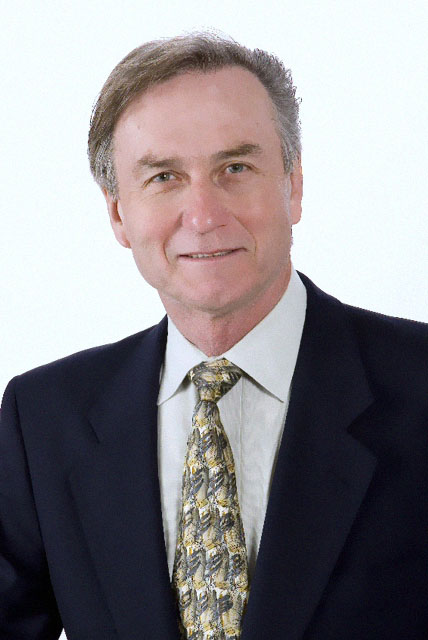
by guest blogger John McDougall, MD, author, internist, and TV host
Most people have been ingrained with the false notion that starch and carbs make you gain weight. If this were true, there would be an epidemic of obesity among the 1.73 billion Asians living on rice-based diets. After moving to the West and replacing their starch-based diet with animal foods, people from Japan and the Philippines would become trimmer and healthier looking. But that’s not so. In fact, the opposite happens.
Consider the populations around the world that look the youngest, healthiest, and trimmest. Many are in Japan, China, Korea, Thailand, Indonesia, and the Philippines, eating mostly rice with some vegetables. In places like Peru where potatoes are the staple food, people are trim and strong. In rural Mexico, we find people eating corn, beans, and squash. No one is overweight or on a diet there. They have no need for Weight Watchers or Jenny Craig. Worldwide, populations with the highest dietary consumption of starch are the most trim and fit. Delving deeper, they have extremely low rates of diabetes, arthritis, multiple sclerosis, heart disease, and cancers of the breast, prostate, and colon. Their diets are centered around copious quantities of starch, and they’re healthy.
The body’s metabolism is genetically encoded to run most efficiently on starch. No amount of willpower, dieting, or wishful thinking will change that fundamental fact. The hunger drive keeps us alive. You cannot fool hunger by pushing yourself away from the table, putting down your fork between bites, eating from a small plate, or counting calories. You will never train yourself not to experience the discomfort associated with hunger.
Meat, dairy, animal fats, and vegetable oils lead to excess weight gain and illness. Starches, vegetables, and fruits support a trim, fit body and a lifetime of excellent health.
You may have heard that all calories are the same when it comes to body weight. That’s not true, especially when it comes to satisfying the appetite and accumulating fat. Three components of food provide the fuel we know as calories: protein, fat, and carbohydrate. Starches like corn, beans, potatoes, and rice offer abundant carbohydrates and dietary fiber and are very low in fat.
Satisfying the appetite begins with filling the stomach. Compared to cheese (4 calories per gram), meat (4 calories per gram), and oils (9 calories per gram), starches contribute only about 1 calorie per gram. They help you to feel full for just a quarter of the calories in cheese and meat, and one-ninth of those in oil. Plus, they offer a great deal of satisfaction. Research comparing the way carbohydrates and fats appease the appetite shows that carbohydrates lead to hours of satiety, whereas fats have little impact. In other words, when you fill up on starch you stay full for a long time, whereas when you fill up on fats and oils you still want to eat more.
Before I understood the importance of a starch-centered diet, my meals consisted of red meat (no carbohydrates), chicken (no carbohydrates), fish (no carbohydrates), cheese (2 percent carbohydrates), and animal fats and vegetable oils (no carbohydrates). After finishing a full plate of these foods, I still found myself ravenous. My second plate left my belly feeling a sense of physical fullness, yet I was still yearning for more. After my third plate of carbohydrate-deficient foods I finally received the signals that it was time to stop eating: I felt overstuffed and in pain. Still, because I remained unsatisfied, I remember thinking, “If I had room, I would stuff in one more pork chop, I’m still so hungry.” At times I wondered whether I might have emotional issues with food. After all, I had just downed large quantities and I was still starving. It wasn’t until I began eating sufficient amounts of appetite-satisfying carbohydrates that I realized my “mental illness,” commonly known as obsessive-compulsive overeating, was completely cured by this simple shift in my diet.
You can learn more about my diet by visiting www.drmcdougall.com
 John McDougall, MD is a board-certified internist, author of 11 national best-selling books, the international on-line “McDougall Newsletter,” host of the nationally syndicated television show “McDougall M.D.,” and medical director of the 10-day, live-in McDougall Program in Santa Rosa, CA. He is an Associate Professor at the Touro University College of Osteopathic Medicine, Mare Island,
Vallejo, California. www.drmcdougall.com
John McDougall, MD is a board-certified internist, author of 11 national best-selling books, the international on-line “McDougall Newsletter,” host of the nationally syndicated television show “McDougall M.D.,” and medical director of the 10-day, live-in McDougall Program in Santa Rosa, CA. He is an Associate Professor at the Touro University College of Osteopathic Medicine, Mare Island,
Vallejo, California. www.drmcdougall.com




More confusion. I have tried everything and I am so disgusted, that lately. I have just been trying to eat less. However, I do try to eat as little carbs as possible. So now this Dr. says eat them. I’ll take a look at his site. I just don’t know what to do…….
Thanks for this article Maria! I love Dr. McDougall’s soups, available in our grocery store. I did notice that his diet consists of whole wheat pasta and brown rice and lots of other grains, such as barley and oats, and NOT white flour products and white rice. I am on Dr. Perricone’s diet and it incorporates these grains also, although it is more Mediterranean, with lots of fish and olive oil. Both diets do NOT include processed and junk food and copious amounts of refined sugar. You have to find that happy medium.
When I use to eat a high carbohydrate diet my weight was stable and I felt good; then along came the Atkins diet and I became convince how I was eating was unhealthy, so I switched to a high protein, low carbohydrate diet. My weight began to steadily rise until I have now gained 30 lbs, convinced that the experts must be right, I never attributed it to my change in diet, but assumed something was wrong with my metabolism. Today I will go back on my old diet and enjoy life!
Dr. McDougall is correct in his assertions when metabolic function is healthy/optimal. Most overweight people however do not have healthy metabolic function. Gary Taubes (Good Calories Bad Calories) and the Drs. Eades (Protein Power) explain it best, if you’ve struggled with weight/health, it’s worth taking a look.
Lack of exercise is more of a problem than anything. There’s a reason why kids used to eat McDonald’s Happy Meals, cheap macaroni dinners, and potato chips for years, but didn’t gain so much weight. It’s because they *wanted* to go outside and run around, go camping, go hiking and fishing, and play on sports teams. I remember how our parents had to yell at us to come back to the house when it got dark outside in the summer. Now more parents are nagging their kids to go outside.
I can??t genuinely aid but admire your weblog site, your site is adorable and nice
Do LV Have LV Outlet Richmond Va
The notion that Asians and a Pacific Islanders are healthy for eating white, glucose-rich sticky rice is simply wrong. As an Asian American, I know many many many Asians and P.I.s afflicted with diabetes because of their high fat and starchy diets: the prevalence of diseases like diabetes might have been somewhat contained historically by consuming limited portions. But with increasing urbanization and rising incomes, you’re definitely seeing increase in diet related diseases, as people eat more of the high bad fat foods and high starch foods. In mis-stating what’s going on among Asians and P.I.s here and abroad to encourage people (ie y-o-u) to eat more starch-rich foods is as reprehensible as it is scientifically wrong. The guy simply does not know what he’s talking about.
The notion that Asians and Pacific Islanders are healthy for eating white, glucose-rich sticky rice is simply wrong. As an Asian American, I know many many many Asians and P.I.s afflicted with diabetes because of their high fat and starchy diets: the prevalence of diseases like diabetes might have been somewhat contained historically by consuming limited portions. But with increasing urbanization and rising incomes, you’re definitely seeing increase in diet related diseases, as people eat more of the high bad fat foods and high starch foods. In mis-stating what’s going on among Asians and P.I.s here and abroad to encourage people (ie y-o-u) to eat more starch-rich foods is as reprehensible as it is scientifically wrong. The guy simply does not know what he’s talking about.
Tony, Dr. McDougall doesn’t recommend a high starch/high fat diet like you’re describing. His diet is high starch/low fat.
I really wish people would get educated about the subject matter they are incorrectly disagreeing with.
My first question to Tony would be, have the Asian and the PI people he said gained weight etc on a high starch diet converted to the American diet or are they still eating as their ancestors did? The starches that are white, ie bread, pasta, and flours any dietitian worth a grain of salt will tell you that they are not healthy foods.
This is not what Dr McDougall is promoting